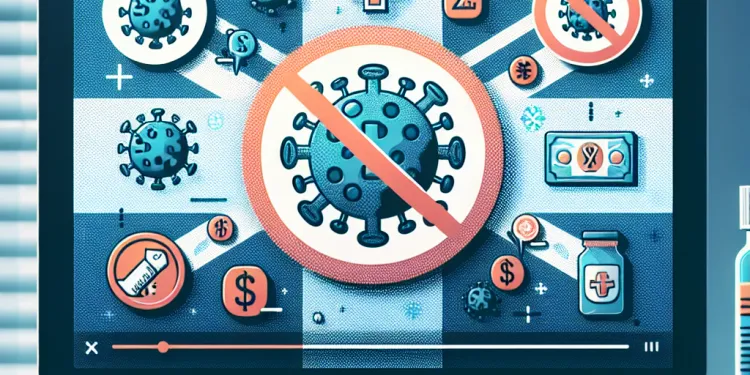
Find Help
More Items From Ergsy search
-
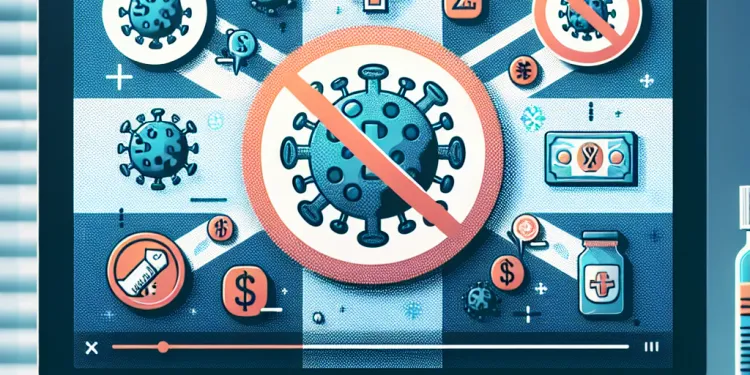
How can measles be prevented?
Relevance: 100%
-
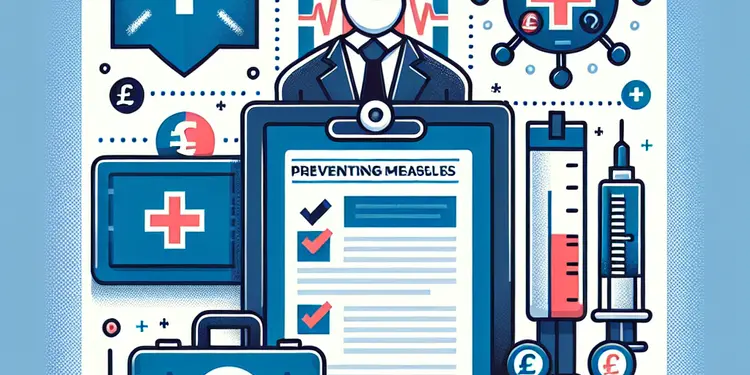
How can measles outbreaks be prevented?
Relevance: 97%
-
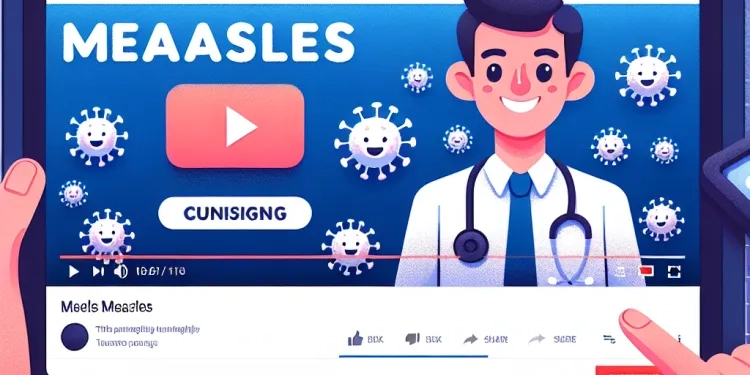
Measles
Relevance: 87%
-

Is there a treatment for measles?
Relevance: 84%
-

Is there a treatment for measles?
Relevance: 83%
-
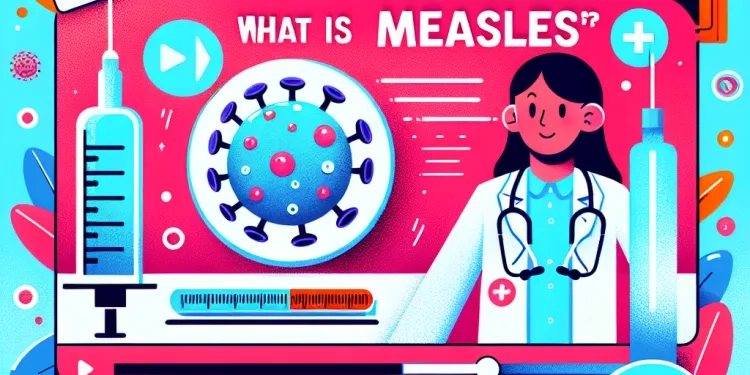
What is measles?
Relevance: 83%
-

How is measles transmitted?
Relevance: 81%
-
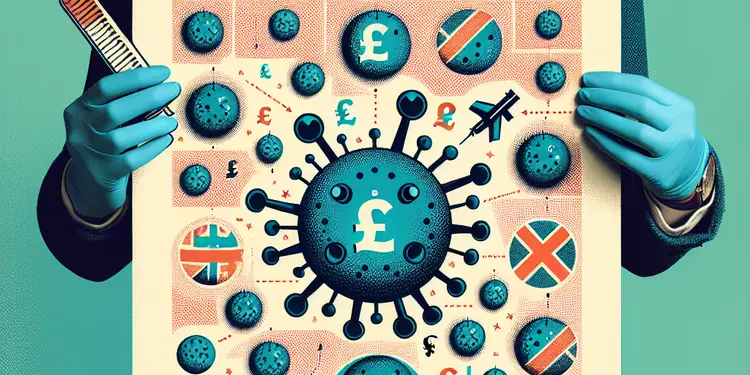
How is measles spread?
Relevance: 80%
-

Can measles be serious?
Relevance: 80%
-

Are measles outbreaks common in the UK?
Relevance: 80%
-

How contagious is measles?
Relevance: 79%
-

Is Rubella the same as measles?
Relevance: 79%
-

Are measles cases rising in the UK?
Relevance: 79%
-

What are the symptoms of measles?
Relevance: 78%
-

Can measles cause complications?
Relevance: 78%
-

Can measles be treated?
Relevance: 77%
-

What are the symptoms of measles?
Relevance: 77%
-

How is measles transmitted?
Relevance: 77%
-

What are the symptoms of measles?
Relevance: 76%
-

How long is a person with measles contagious?
Relevance: 75%
-

Are measles cases currently rising in the UK?
Relevance: 75%
-
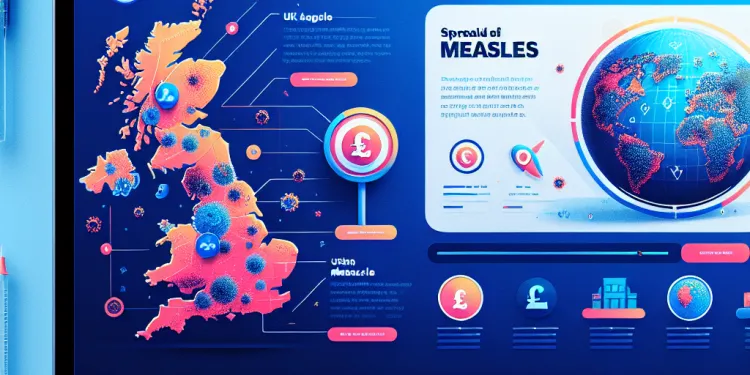
Are measles more common outside of the UK?
Relevance: 75%
-
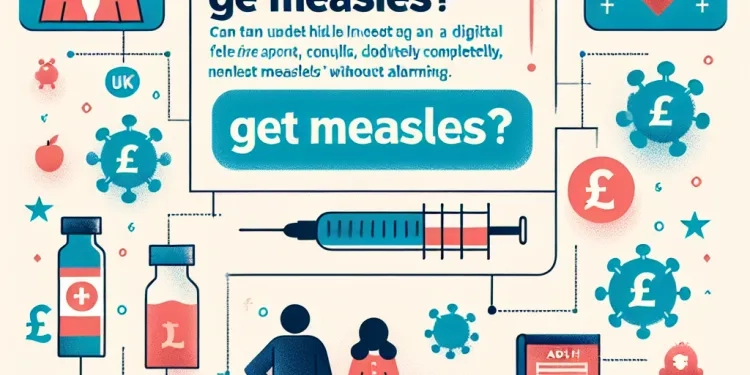
Can adults get measles?
Relevance: 75%
-

What should I do if I suspect I have measles?
Relevance: 74%
-

What is causing the rise in measles cases in the UK?
Relevance: 74%
-

Are adults in the UK at risk from measles?
Relevance: 73%
-

Why is measles less common in the UK?
Relevance: 73%
-

Why are measles outbreaks still occurring?
Relevance: 72%
-

Who is most at risk from measles?
Relevance: 72%
-

How does the UK monitor measles outbreaks?
Relevance: 72%
-

Is there a risk of global spread if measles cases rise in the UK?
Relevance: 72%
-

How does vaccination affect measles rates?
Relevance: 71%
-
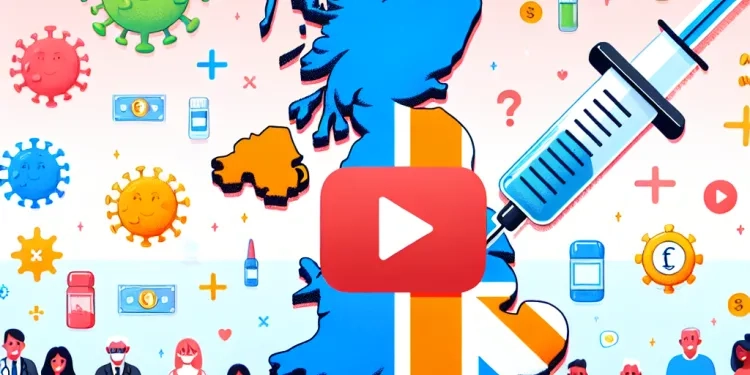
What is the current measles vaccination coverage in the UK?
Relevance: 70%
-
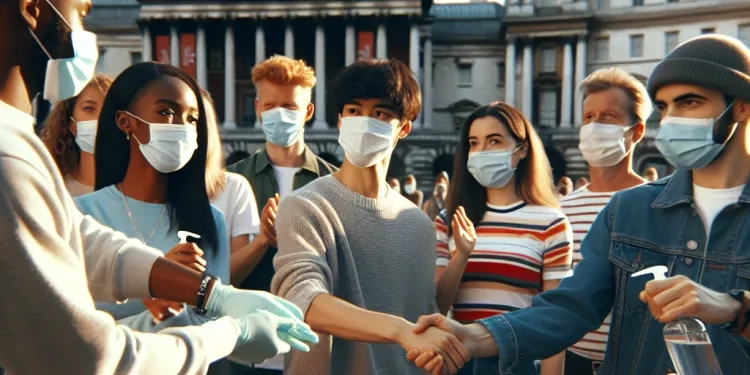
What should you do during a measles outbreak?
Relevance: 70%
-

Which countries have higher rates of measles?
Relevance: 70%
-
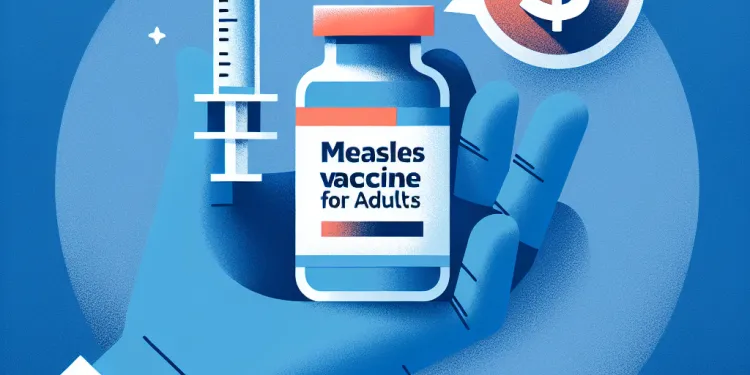
Can the measles vaccine be given to adults?
Relevance: 69%
-

What complications can arise from measles?
Relevance: 69%
-
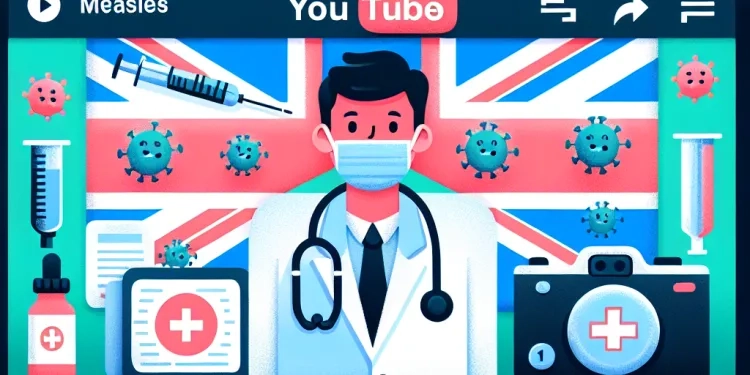
Can you get measles more than once?
Relevance: 69%
-
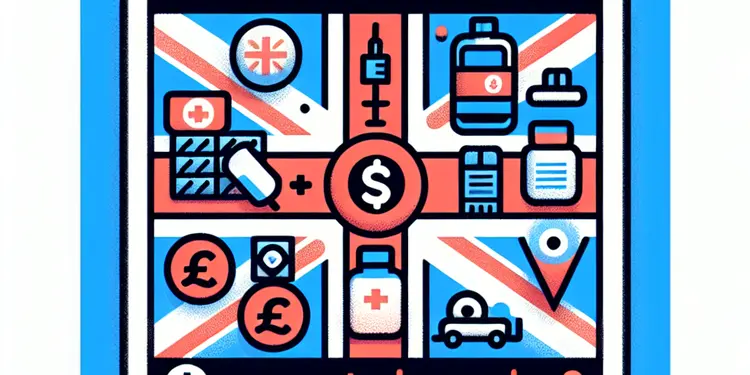
What should you do if you suspect you have measles?
Relevance: 68%
-

Is it necessary to get a measles vaccine before travelling?
Relevance: 68%
How Can Measles Be Prevented?
Measles is a highly contagious viral disease that can have severe health implications. Fortunately, it is preventable through effective measures. In the UK, substantial public health efforts focus on promoting awareness and vaccination to prevent the spread of measles. Below are some key strategies and information on how measles prevention can be achieved.
Vaccination: The Most Effective Measure
The primary and most effective method of preventing measles is vaccination. In the UK, the MMR vaccine, which protects against measles, mumps, and rubella, is routinely given to children. The NHS immunisation schedule recommends the first dose of MMR at around 12 months, with a second dose before starting school, typically at 3 years and 4 months. Ensuring high vaccination coverage is critical as it not only protects the individuals who are immunised but also helps to achieve herd immunity, protecting those who cannot be vaccinated due to medical conditions.
Public Health Campaigns and Education
Public health campaigns in the UK play an essential role in educating the community about the importance of the MMR vaccine. These initiatives aim to dispel myths and misinformation about vaccinations, addressing vaccine hesitancy and enhancing public confidence in immunisation programmes. Through these campaigns, people are encouraged to make informed health decisions which contribute to reducing measles outbreaks.
Surveillance and Rapid Response
Ongoing monitoring and surveillance for measles cases are crucial for early detection and response to possible outbreaks. The UK utilises a national surveillance system to track measles cases and investigate any clusters. Rapid response measures ensure that any outbreaks are contained swiftly, reducing the risk of further transmission.
Infection Control Practices
In addition to vaccination, maintaining good hygiene practices can help in preventing the transmission of measles. Regular hand washing, covering the mouth and nose when coughing or sneezing, and avoiding close contact with infected individuals are practical steps to reduce the spread of the virus. Health authorities also recommend that those who have symptoms of measles stay at home to prevent further transmission, especially in community settings such as schools or workplaces.
By adhering to these preventive measures, individuals and communities in the UK can contribute significantly to the fight against measles, ensuring better public health outcomes for everyone.
How Can We Stop Measles?
Measles is a virus that spreads very easily and can make people very sick. But there are ways to stop it from spreading. In the UK, lots of work is done to teach people about measles and how to stop it. Here are some simple ways to keep everyone safe from measles.
Get Vaccinated: The Best Way
The best way to stop measles is to get vaccinated. In the UK, kids get the MMR vaccine. This vaccine protects against measles, mumps, and rubella. Children get the first MMR shot at about 12 months old. They get another shot at about 3 years and 4 months old, before starting school. Getting vaccinated helps to protect not only yourself but also other people who are too sick to get the vaccine.
Health Campaigns and Learning
In the UK, there are campaigns to teach everyone about the MMR vaccine. These campaigns help people understand how important vaccines are. They also help answer questions and correct wrong ideas about vaccines. By understanding more, people can make smart choices about their health and help stop measles from spreading.
Watching for Measles
Doctors and health workers in the UK watch carefully for any cases of measles. They have systems to quickly find and stop any outbreaks. This helps to keep everyone safe by making sure measles does not spread.
Staying Clean and Safe
Besides getting vaccines, keeping clean can help stop measles from spreading. Wash your hands often, cover your mouth when you cough or sneeze, and try to stay away from people who have measles. If you feel sick with measles, stay home. This will help keep others safe, especially in places like schools or work.
By following these simple steps, people in the UK can help stop measles. This makes sure everyone stays healthy and safe.
Frequently Asked Questions
What is the most effective way to prevent measles?
The most effective way to prevent measles is through vaccination with the MMR (measles, mumps, and rubella) vaccine.
At what age should children receive the measles vaccination in the UK?
Children in the UK are typically given the first dose of the MMR vaccine at 12 to 13 months of age, with a second dose offered at 3 years and 4 months, before they start school.
Can adults receive the measles vaccine?
Yes, adults who are unsure of their vaccination status or have not received the MMR vaccine should contact their GP for advice on receiving the vaccination.
Is the measles vaccine safe?
Yes, the MMR vaccine is considered safe and is effective at providing long-lasting protection against measles, mumps, and rubella. Serious side effects are very rare.
Are there any exemptions for receiving the measles vaccine?
Some individuals may have medical exemptions, such as severe allergies to vaccine components or compromised immune systems, which should be discussed with a healthcare provider.
What is herd immunity and how does it relate to measles?
Herd immunity occurs when a large portion of the community becomes immune to a disease, reducing its spread. High vaccination rates are crucial to achieving herd immunity against measles.
Can measles be spread by someone who has been vaccinated?
While the chance is very low, it's possible for vaccinated individuals to transmit measles if they become infected. However, vaccines greatly reduce the likelihood of infection and transmission.
Why is it important to get the second dose of the MMR vaccine?
The second dose ensures higher immunity and provides protection to those who did not respond to the first dose, thereby maximizing overall immunity.
What should I do if I miss a scheduled measles vaccination for my child?
If a scheduled dose is missed, consult a healthcare provider to reschedule the vaccination as soon as possible to ensure continued protection.
Is it necessary to vaccinate against measles if the disease is rare in the UK?
Yes, vaccination is essential even if measles is currently rare, to prevent outbreaks and protect against imported cases from other regions.
Can measles outbreaks still occur in the UK?
Outbreaks can occur if vaccination rates drop, leading to a lack of herd immunity, or if infected individuals travel to areas with lower vaccination coverage.
How long does immunity last after receiving the measles vaccine?
Immunity from the measles vaccine is typically long-lasting, often for life, following the two recommended doses.
Are there specific symptoms to watch for after measles vaccination?
Common mild side effects include a sore arm, fever, or a mild rash. Severe reactions are extremely rare, but any concerns should be discussed with a healthcare provider.
Do I need to be vaccinated against measles if I've already had the disease?
Individuals who have had measles usually have lifelong immunity, but vaccination status should be confirmed with a healthcare provider.
Where can I get more information about measles vaccinations in the UK?
For more information, consult your GP or visit the NHS website, which provides detailed guidance on vaccinations in the UK.
How can we stop people from getting measles?
The best way to stop measles is to get a shot called the MMR vaccine. This shot also stops mumps and rubella.
When should children get the measles vaccine in the UK?
Children in the UK get the measles vaccine as part of the MMR vaccine. They usually get it when they are 1 year old, and then again when they are 3 or 4 years old.
To help understand, you can:
- Use pictures to show the vaccine schedule.
- Ask someone to read it with you.
- Use a calendar to mark when the vaccines are due.
In the UK, kids get their first MMR shot when they are 12 to 13 months old. They get the second MMR shot when they are 3 years and 4 months old. This is before they start school.
Can grown-ups get the measles shot?
Yes, grown-ups can get the measles shot. The shot helps you stay healthy and not catch measles.
If you think you need the shot, talk to a doctor or nurse. They will help you decide. A friend or family member can help you talk to them.
You can also use pictures or stories to understand more about the measles shot. They can make it easier to know why the shot is important.
If you are an adult and you don't know if you had the MMR vaccine, or if you never got it, you should talk to your doctor. They can tell you if you need the vaccine.
Is the measles vaccine safe?
The measles vaccine is safe. It helps keep you from getting sick. If you have worries, talk to your doctor or nurse. They can help answer your questions.
You can use pictures and videos to learn more. Ask someone you trust to help you if you need it.
Yes, the MMR shot is safe. It helps keep you from getting sick with measles, mumps, and rubella. Bad reactions to the shot are very rare.
Can someone not get the measles vaccine?
Some people may not need to get the measles vaccine. These can be:
- People who are already sick
- People who are allergic to vaccine ingredients
- Babies who are too young
- Some pregnant people
If you want to know more about who can skip the vaccine, it's a good idea to talk to a doctor or nurse. They can help you understand what is best for you.
Using a calendar can be helpful to keep track of when you need vaccines. You can also use pictures or notes to remind you. Talking to someone you trust can always help if you have questions.
Some people might not be able to have the vaccine because of certain health problems. They might have bad allergies to something in the vaccine, or their bodies might not be strong enough. It's important to talk to a doctor to know what's best.
What is herd immunity and how is it linked to measles?
Herd immunity means when most people in a group are safe from a disease because a lot have had their shots or are immune.
This means the disease can't spread easily. It helps protect people who can't get shots, like babies or sick people.
For measles, herd immunity is important. Measles spreads very quickly.
When many people get their measles shots, it stops measles from spreading. This keeps everyone safe.
To learn more, you can watch videos or use picture books. They help explain things in a simple way.
Herd immunity happens when lots of people in a community are safe from a disease. This makes it hard for the disease to spread. Getting lots of people vaccinated is important to stop measles.
Here are some ways to understand this better:
- Images: Look at pictures showing how vaccines stop diseases from spreading.
- Videos: Watch short videos that explain herd immunity.
- Ask Questions: Talk with a doctor or nurse if you want to know more.
Can you catch measles from someone who got the vaccine?
Here is a simple answer:
- Vaccines help protect people from getting sick.
- People who get the measles vaccine usually do not spread measles to others.
- It is very rare, but sometimes a person who got the vaccine might still spread measles.
If you have more questions, ask a doctor or health worker. They can help you understand.
Helpful tools like visual aids or talking with someone can make understanding easier.
It is very rare, but someone who got the vaccine can still spread measles if they catch it. But getting the vaccine makes it much less likely for them to catch or spread measles.
Why do you need to get the second MMR shot?
The MMR shot stops you from getting three illnesses: measles, mumps, and rubella.
It is important to get the second shot because it helps protect you better. The first shot is good, but the second shot makes sure you are really safe from getting sick.
Ask a grown-up or a doctor if you have questions.
Using pictures or videos can also help you understand why shots are important.
The second shot helps make us stronger against getting sick. It helps people who did not get strong from the first shot. This way, everyone gets the best chance to stay healthy.
What should I do if my child misses their measles vaccination?
If your child misses their measles shot, don't worry! Here’s what you can do:
- Talk to your doctor or nurse. They know what to do to help.
- Ask about when your child can get the shot. They will give you a new date.
- Keep a note or put a reminder on your calendar. This will help you remember the new date.
Tools that can help:
- Use a calendar to mark the new date.
- Set an alarm on your phone to remind you.
- Ask someone to help you remember the new date.
It’s important because the shot helps keep your child healthy!
If you miss a shot that was planned, talk to your doctor or nurse. They will help you make a new plan for your vaccine. This is important to keep you protected.
Do you need to get a measles vaccine if measles is uncommon in the UK?
Measles is a sickness that can make you feel very sick. Even if it doesn’t happen a lot in the UK, it’s still important to get the measles vaccine. The vaccine helps protect you and others from getting sick.
Here are some reasons why the vaccine is helpful:
- Vaccines keep you safe from getting measles.
- The vaccine helps stop measles from spreading to other people.
- Getting vaccinated helps protect people who can’t get the vaccine, like babies or people who are very sick.
If you have questions or need help, you can:
- Ask a grown-up you trust.
- Talk to your doctor or nurse.
- Look at pictures or videos about vaccines for kids to understand more.
Yes, getting vaccinated is very important. Even if measles is uncommon right now, vaccines stop it from spreading and guard against cases that come from other places.
Can people still get measles in the UK?
Yes, people can still catch measles in the UK.
Measles is a sickness that spreads easily. Tools that can help:
- Get a vaccination to protect yourself.
- Wash your hands often.
- Stay home if you feel sick.
Talk to your doctor or nurse for more help.
Sometimes, sickness can spread. This happens if not enough people get their vaccines. It can also happen if sick people go to places where not many people have vaccines.
How long does the measles shot protect you?
The measles shot helps keep you safe. If you get the two shots you need, it usually keeps you safe for a very long time, maybe even forever.
What signs should I look for after getting a measles shot?
After getting a measles shot, watch for these signs:
- Fever.
- Feeling tired.
- A mild rash.
If you notice anything worrying, talk to a doctor.
It can help to use:
- Pictures to show what to look for.
- An adult to help understand these signs.
- A calendar to mark days when symptoms start or stop.
You might get a sore arm, a fever, or a small rash. These are normal and not serious. Bad reactions almost never happen. If you are worried, talk to a doctor or nurse.
Should I get the measles shot if I've already had measles?
People who have had measles usually can't get it again. But, you should check with your doctor to make sure you are protected.
How can I find out more about measles shots in the UK?
If you want to know more about measles shots in the UK, you can use these tips:
- Talk to your doctor. They can answer your questions.
- Visit the NHS website. It's a good place for health information.
- Ask a nurse at your local clinic. They can help too.
You can try these tools:
- Ask someone to read with you. It's easier to understand together.
- Use a computer or tablet to look up information. Pictures and videos can help.
For more help, you can talk to your doctor or look at the NHS website. They have lots of information about vaccines in the UK.
Useful Links
This website offers general information and is not a substitute for professional advice.
Always seek guidance from qualified professionals.
If you have any medical concerns or need urgent help, contact a healthcare professional or emergency services immediately.
- Ergsy carfully checks the information in the videos we provide here.
- Videos shown by Youtube after a video has completed, have NOT been reviewed by ERGSY.
- To view, click the arrow in centre of video.
- Most of the videos you find here will have subtitles and/or closed captions available.
- You may need to turn these on, and choose your preferred language.
- Go to the video you'd like to watch.
- If closed captions (CC) are available, settings will be visible on the bottom right of the video player.
- To turn on Captions, click settings .
- To turn off Captions, click settings again.
More Items From Ergsy search
-

How can measles be prevented?
Relevance: 100%
-

How can measles outbreaks be prevented?
Relevance: 97%
-

Measles
Relevance: 87%
-

Is there a treatment for measles?
Relevance: 84%
-

Is there a treatment for measles?
Relevance: 83%
-

What is measles?
Relevance: 83%
-

How is measles transmitted?
Relevance: 81%
-

How is measles spread?
Relevance: 80%
-

Can measles be serious?
Relevance: 80%
-

Are measles outbreaks common in the UK?
Relevance: 80%
-

How contagious is measles?
Relevance: 79%
-

Is Rubella the same as measles?
Relevance: 79%
-

Are measles cases rising in the UK?
Relevance: 79%
-

What are the symptoms of measles?
Relevance: 78%
-

Can measles cause complications?
Relevance: 78%
-

Can measles be treated?
Relevance: 77%
-

What are the symptoms of measles?
Relevance: 77%
-

How is measles transmitted?
Relevance: 77%
-

What are the symptoms of measles?
Relevance: 76%
-

How long is a person with measles contagious?
Relevance: 75%
-

Are measles cases currently rising in the UK?
Relevance: 75%
-

Are measles more common outside of the UK?
Relevance: 75%
-

Can adults get measles?
Relevance: 75%
-

What should I do if I suspect I have measles?
Relevance: 74%
-

What is causing the rise in measles cases in the UK?
Relevance: 74%
-

Are adults in the UK at risk from measles?
Relevance: 73%
-

Why is measles less common in the UK?
Relevance: 73%
-

Why are measles outbreaks still occurring?
Relevance: 72%
-

Who is most at risk from measles?
Relevance: 72%
-

How does the UK monitor measles outbreaks?
Relevance: 72%
-

Is there a risk of global spread if measles cases rise in the UK?
Relevance: 72%
-

How does vaccination affect measles rates?
Relevance: 71%
-

What is the current measles vaccination coverage in the UK?
Relevance: 70%
-

What should you do during a measles outbreak?
Relevance: 70%
-

Which countries have higher rates of measles?
Relevance: 70%
-

Can the measles vaccine be given to adults?
Relevance: 69%
-

What complications can arise from measles?
Relevance: 69%
-

Can you get measles more than once?
Relevance: 69%
-

What should you do if you suspect you have measles?
Relevance: 68%
-

Is it necessary to get a measles vaccine before travelling?
Relevance: 68%


